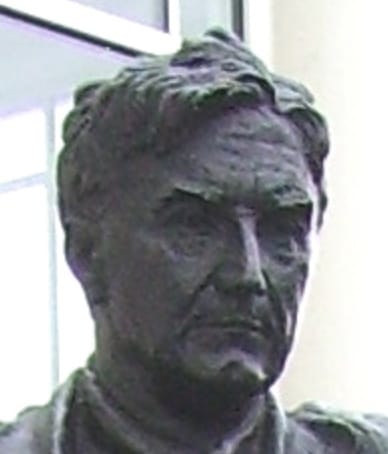
Ralph Vaughan Williams (pronounced “Rafe Von Williams”) was born on October 12, 1872, in Down Ampney, Gloucestershire, England, into a family with a strong musical tradition. He began learning the piano and violin at an early age. Ralph attended the Royal College of Music in London, where he studied with notable composers such as Charles Villiers Stanford and Hubert Parry.
Vaughan Williams was deeply influenced by English folk music, which became a central element of his compositions. He collected and transcribed folk songs, incorporating their melodies and rhythms into his works. His compositions include symphonies, choral music, operas, chamber music, and film scores. Some of his most famous works include the “The Lark Ascending,” “Fantasia on a Theme by Thomas Tallis,” and “A Sea Symphony.” He served in various musical roles during his career, including conductor, educator, and editor. During World War I, Vaughan Williams served as a medical orderly in France, which deeply affected his outlook on life and influenced his compositions.
Ralph Vaughan Williams was a key figure in the English Musical Renaissance, helping to shape a distinctive national style in classical music. He received numerous awards and honors during his lifetime, including the Order of Merit, the Order of the Companions of Honour, and the Gold Medal of the Royal Philharmonic Society. Vaughan Williams continued to compose and conduct well into his later years, and passed away on August 26, 1958 at the age of 85 in London, leaving behind a significant body of work that continues to be celebrated and performed today.
He is considered one of the most significant English composers of the 20th century. His compositions are still widely performed and admired for their unique blend of English folk influences, rich harmonies, and emotional depth. His music is considered a valuable part of the classical music canon, and he remains an important figure in the history of British music.
